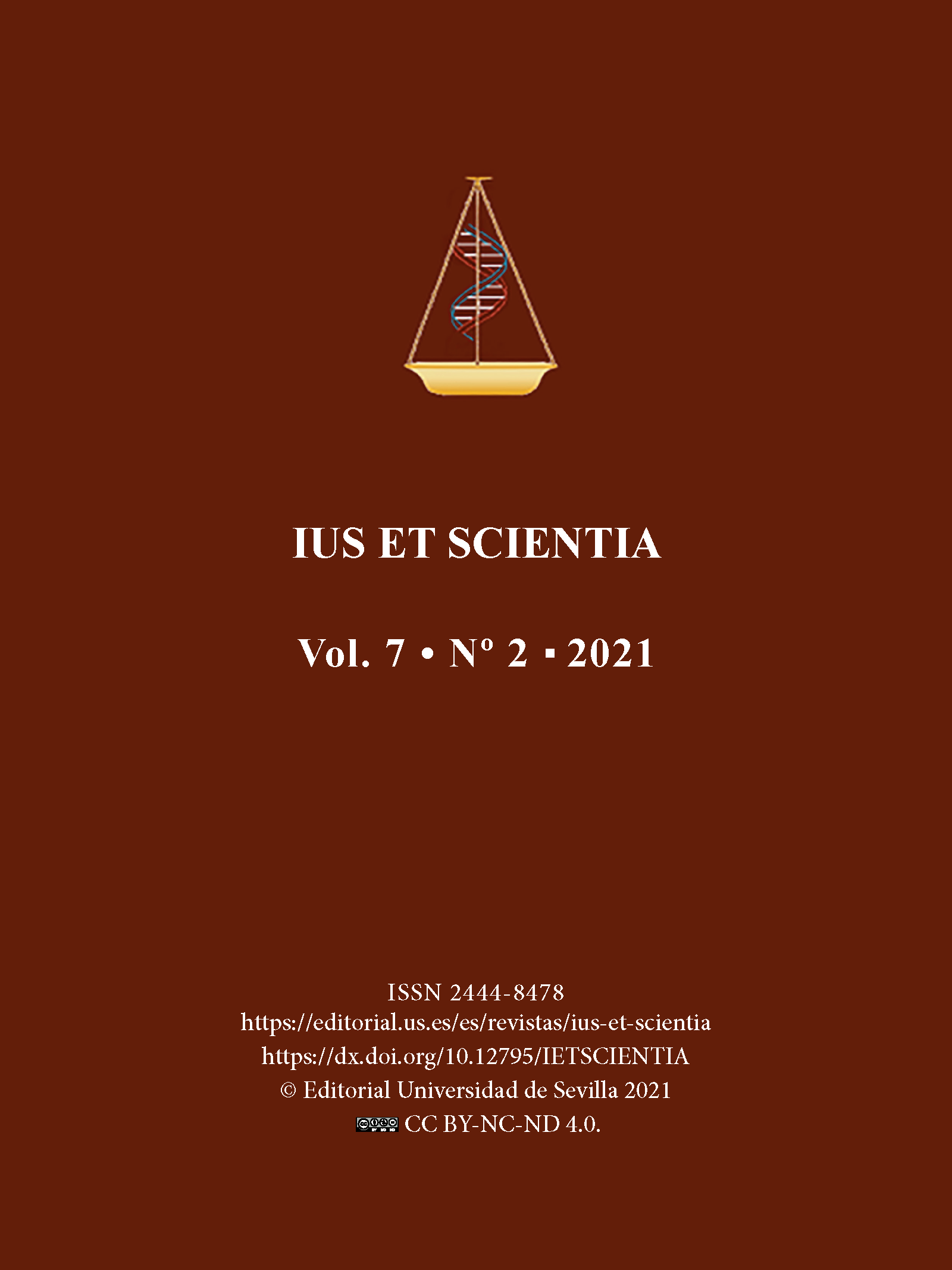Artificial intelligence and Labor Law
DOI:
https://doi.org/10.12795/IETSCIENTIA.2021.i02.03Keywords:
Modernization, Job losses, New sources of employment, Unemployment, Sustainability of the Social Security systemAbstract
This paper analyzes the challenges that the full automation of the productive processes that will be achieved as a result of the application of artificial intelligence to the business sector will mean for the Labor Law of the XXI century in a few years time. At the same time, the different possible alternatives that, in practice, could help to avoid the drastic reduction in the workforce that robotization will cause, as well as to guarantee the maintenance of disability and retirement pensions when our Social Security model, structured on a pay-as-you-go system, is insufficient to meet the social needs that it currently covers, are discussed.
Downloads
References
ALEMÁN PÁEZ, F. (2002), “Cambios en la legislación y efectos en la relación laboral: ¿hacia una pérdida de intensidad del Derecho del Trabajo?”, Revista Sistema, n.º 168-169, Madrid, pág. 121-144.
ÁLVAREZ CUESTA, H. (2019), “Descubrir nuevos yacimientos de empleo: emprendimiento, empleos verdes, deporte, cultura y ocio”, en AAVV, La empleabilidad y la calidad en el empleo: apostando por la igualdad efectiva (coord. María de los Reyes Martínez Barroso (dir.), Sepin Editorial Jurídica, Madrid, págs. 41-63.
CARRASCO FERNÁNDEZ, F.M., (2018), “La sociedad de control en los trabajadores a través de sistemas informáticos avanzados”, en AAVV, La revolución tecnológica y sus efectos en el mercado de trabajo: un reto del siglo XXI, Mella Méndez (dir.), Wolters Kluwer, Madrid, págs. 515-533.
CEGARRA CERVANTES, F.J. (2019), “La aportación económica al tesoro público en los despidos colectivos que afecten a trabajadores de cincuenta o más años: interpretación judicial del requisito de la obtención de beneficios”, en AAVV, Jornadas doctorales de la Universidad de Murcia, Editum, Murcia, págs. 320-323.
DURÁN LÓPEZ, F. (2004), Cinco Días, “Autónomos, profesionales y régimen laboral” (prensa).
GIMENO DÍAZ DE ATAURI, P. (2011), “El fondo de capitalización del despido y su incidencia en el sistema de pensiones”, Temas laborales. Revista andaluza de trabajo y bienestar social, nº 112 (ejemplar dedicado a: Reformas en materia de Protección Social), págs. 337-364.
GÓMEZ SÁNCHEZ, V., (2010) “¿Es posible trasladar a España el modelo austriaco?”, Relaciones Laborales, nº. 12, Sección Economía laboral y Sociología de las organizaciones”, La Ley 5606/2010.
JIMENO SERRANO, J.F. (2000), “El sistema español de pensiones: previsiones de gasto y medidas de reforma”; Hacienda Pública Española, Instituto de Estudios Fiscales, Ministerio de Economía y Hacienda, Número monográfico, 2000.
KAHALE CARRILLO, D.T. (2018), “El papel de la Administración Pública en la implantación de la Industria 4.0”, Revista Internacional y Comparada de Relaciones Laborales y Derecho del Empleo, vol. 6, nº. 1, 2018, págs. 138-163.
LÓPEZ MONTENEGRO, D.M. (2020), “El futuro de los principios del derecho de trabajo frente a la cuarta revolución industrial”, Revista Auctoritas Prudentium, nº. 22, 2020, págs. 1-18 soporte informático.
MARTÍN CARRETERO, J.M. (2018), “Las plataformas digitales como modelo de negocio”, en AAVV, “Plataformas digitales y mercado de trabajo” (coord. Rodríguez Fernández), 2018, Ministerio de Trabajo e Inmigración, Madrid, págs. 15-34
MIRAS MARÍN, N. (2019), “La renta básica universal y los impuestos sobre la automatización robótica”, Gaceta fiscal, nº. 402, 2019, págs. 117-142.
RODRÍGUEZ ESCANCIANO, S. (2015), “Poder de control empresarial, sistemas tecnológicos y derechos fundamentales de los trabajadores”, Tirant lo Blanch, Valencia.
RODRÍGUEZ MARTÍN-RETORTILLO, R.M. (2019), “La sustitución de trabajadores por robots. La frontera entre la libertad de empresa y el derecho al trabajo en la era digital”, Revista Lex Mercatoria, nº. 12, págs. 1-12.
SÁNCHEZ RON, J.M. (2020), Política exterior, vol. 34, nº 193, págs. 76-84.
VALVERDE ASENCIO, A.J. (2020), “Implantación de sistemas de inteligencia artificial y trabajo”, Bomarzo, Albacete.
ZUBIRI ORIA, I. (2003), “El futuro del Sistema de Pensiones en España”, Estudios de Hacienda Pública, Ministerio de Hacienda, Instituto de Estudios Fiscales, Madrid.
Published
How to Cite
Issue
Section
License
Those authors being published in this journal agree to the following terms:
- Authors retain their copyright and they will guarantee to the journal the right of first publication of their work, which will be simultaneously subject to license recognition by Creative Commons that allows others to share such work provided it is stated the author’s name and his first publishing in IUS ET SCIENTIA.
- Authors may take other non-exclusive distribution license agreements version of the published work (e.g. deposit in an institutional digital file or publish it in a monographic volume) provided it is stated the initial publication in this journal.
- It is allowed and encouraged that Author s disseminate their work via the Internet (e. g. institutional digital files or on their website) prior to and during the submission process, which can lead to interesting exchanges and to increase citation of the published work.
- Abstract 1434
- PDF (Español (España)) 706
- HTML (Español (España)) 148





